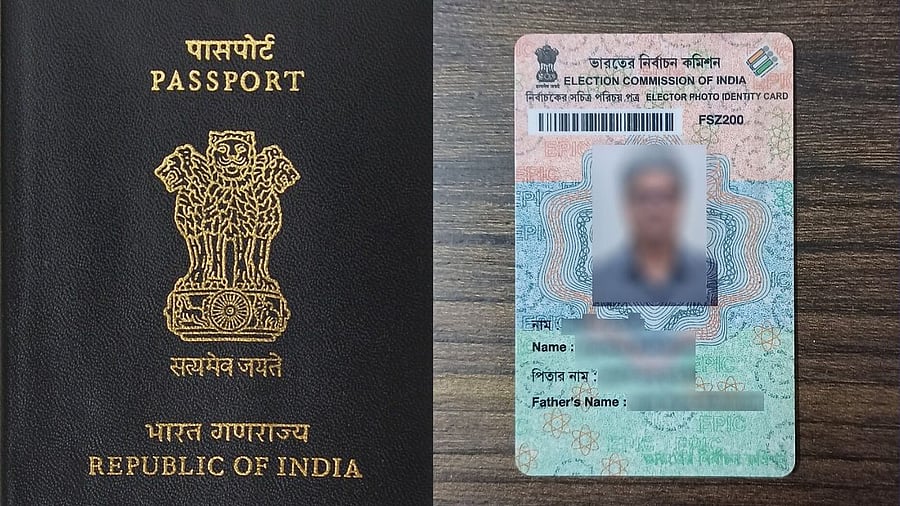
Representative images of Indian passport (L) and voter id (R)
Credit: Wikipedia photo
Time and again the central government has clarified that the Aadhar card, which is one of the important and basic documents in India, is not a proof of citizenship. Also, each copy of the document carries a note stating Aadhar is a proof of "identity" and not "citizenship".
After the hearing on July 10, where the Election Commission of India (ECI) pointed out to the Supreme Court that Aadhar doesn't validate citizenship of any individual, it becomes important to understand what are the official documents that prove Indian citizenship.
Here's a list of documents considered to be a valid proof of citizenship by the government of India. It includes the birth certificate and a few other proofs.
Valid Indian Passport
Representative image of an Indian passport
Credit: Wikipedia photo
While many perceive a passport to be a necessary travel document, that isn't merely case. A valid Indian passport is one of the proofs of citizenship in the country. It allows an Indian national to claim their identity as a citizen of the Republic of India.
Birth Certificate
A birth certificate is a basic document given by the authorities once a child is born. Thus, it lists down the place of birth. For someone who receives this document within Indian boundaries, issued under the Registration of Births and Deaths Act, 1969, it stands as a valid and primary proof of citizenship.
Voter ID (EPIC)
Representative image of Indian voter card
Credit: Wikipedia photo
While birth certificates and passports don't have a minimum age criteria, the next valid proof of citizenship in India can only be availed once the individual enters the votable age. The voter card or the Electors Photo Identity Card (EPIC) can be produced to declare Indian citizenship.
While these are some of the valid proofs of Indian citizenship, there are more such documents spreading across less common categories (like foreigner married to Indian and citizenship by registration), which are also considered.
